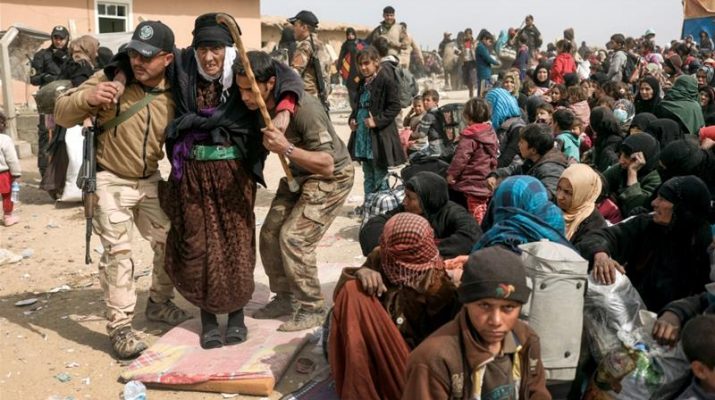There may not be enough space in camps to accommodate the tens of thousands of internally displaced people (IDP) currently fleeing their homes in western Mosul amid intense fighting in the city, a UN official has said.
At least 50,000 people have made their way to the camps on the eastern side of the Tigris River, but the UN warns that if the number rapidly increases, they will be hard pressed to find a place for the new arrivals.
As the US-led Iraqi army offensive to retake the western half of the city from the Islamic State of Iraq and the Levant continues to push on, at least 700,000 civilians are still trapped inside, with food and fuel supplies fast dwindling.
Up to 450,000 are expected to make their way to the camps, Lise Grande, humanitarian coordinator for the UN Assistance Mission for Iraq, said.
Grande told Al Jazeera that people “inside western Mosul who are trying to escape are at extreme risk; they are targeted and occasionally shot by ISIL snipers.”
“Fighting is very intense,” she added. “Daesh [ISIL] is fighting for everything right now.”
Supported by the US-led coalition bombing ISIL in Iraq and Syria, Iraqi forces began the operation to retake the western part of Mosul on 19th Feb. West Mosul is the largest remaining urban stronghold in the “caliphate” declared by ISIL in 2014.
East of Mosul has been declared fully liberated in January, three months after the operation to retake the entire city was officially launched.
Since November 2016, civilians have had to live with scarce amounts of food and water, while electricity is largely intermittent.
“The main route [towards western Mosul] has been cut off. Smugglers have been bringing in little amount of supplies. Electricity can be off for days, sometimes weeks,” said Grande.
US-backed Iraqi forces are now in their fifth day pushing towards western Mosul’s old city centre, the area most densely populated with civilian homes.
Families attempting to flee usually do so in the middle of the night, said Grande. Still, it is a huge risk, and they often have to “run for their lives”. Civilians in the heart of the city depend solely on themselves to get their families to various gathering points at the frontlines. The Iraqi army usually takes over at the frontlines, transporting civilians to safety.
Civilians are often caught in the crossfire, and the chances of being shot while making the trip are extremely high, according to Grande. Those who miss this opportunity of being transported by the army often end up crossing the desert on foot before reaching one of the camps on the eastern side.

